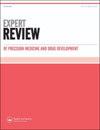Genomic-based treatment of patients with head and neck cancer
IF 1.2
Q4 PHARMACOLOGY & PHARMACY
Expert Review of Precision Medicine and Drug Development
Pub Date : 2020-08-16
DOI:10.1080/23808993.2020.1799710
引用次数: 0
Abstract
ABSTRACT Introduction Head and neck squamous cell carcinomas (HNSCC) are a heterogeneous group of malignancies which make up approximately 5% of all cancers worldwide. Molecular profiling of HNSCC tumors has identified a large number of genetic and epigenetic alterations that contribute to carcinogenesis, though genomic testing currently has a limited role in the treatment of HNSCC. Areas covered Molecular testing and use of targeted therapies are generally limited to the treatment of those with recurrent or metastatic disease or within clinical trials. Given the significant morbidity associated with the treatment of HNSCC, there is growing interest in identifying molecular alterations that drive carcinogenesis and have potential as clinical biomarkers and therapeutic targets. This article aims to review the current literature regarding clinical implications for common molecular alterations in HNSCC tumors and the developing role for genomic analysis in the treatment of this disease. Expert opinion Improved understanding of how molecular alterations contribute to carcinogenesis is essential to guide further research and to develop improved treatment strategies. While there are many promising treatment strategies under investigation, ongoing research is needed before genomic testing and targeted therapy will routinely be incorporated into clinical care for most patients.头颈癌患者的基因组治疗
头颈部鳞状细胞癌(HNSCC)是一种异质性的恶性肿瘤,约占全球所有癌症的5%。尽管基因组检测目前在HNSCC的治疗中作用有限,但HNSCC肿瘤的分子谱已经确定了大量导致癌变的遗传和表观遗传改变。分子检测和靶向治疗的使用通常仅限于治疗复发性或转移性疾病或临床试验。鉴于HNSCC治疗相关的显著发病率,人们对确定驱动癌变的分子改变越来越感兴趣,并有可能作为临床生物标志物和治疗靶点。本文旨在回顾当前文献中关于HNSCC肿瘤中常见分子改变的临床意义以及基因组分析在该疾病治疗中的发展作用。专家意见提高对分子改变如何促进癌变的理解对于指导进一步的研究和制定改进的治疗策略至关重要。虽然有许多有希望的治疗策略正在研究中,但在基因组检测和靶向治疗常规纳入大多数患者的临床护理之前,还需要进行持续的研究。
本文章由计算机程序翻译,如有差异,请以英文原文为准。
求助全文
约1分钟内获得全文
求助全文
来源期刊

Expert Review of Precision Medicine and Drug Development
PHARMACOLOGY & PHARMACY-
CiteScore
2.30
自引率
0.00%
发文量
9
期刊介绍:
Expert Review of Precision Medicine and Drug Development publishes primarily review articles covering the development and clinical application of medicine to be used in a personalized therapy setting; in addition, the journal also publishes original research and commentary-style articles. In an era where medicine is recognizing that a one-size-fits-all approach is not always appropriate, it has become necessary to identify patients responsive to treatments and treat patient populations using a tailored approach. Areas covered include: Development and application of drugs targeted to specific genotypes and populations, as well as advanced diagnostic technologies and significant biomarkers that aid in this. Clinical trials and case studies within personalized therapy and drug development. Screening, prediction and prevention of disease, prediction of adverse events, treatment monitoring, effects of metabolomics and microbiomics on treatment. Secondary population research, genome-wide association studies, disease–gene association studies, personal genome technologies. Ethical and cost–benefit issues, the impact to healthcare and business infrastructure, and regulatory issues.
 求助内容:
求助内容: 应助结果提醒方式:
应助结果提醒方式:


